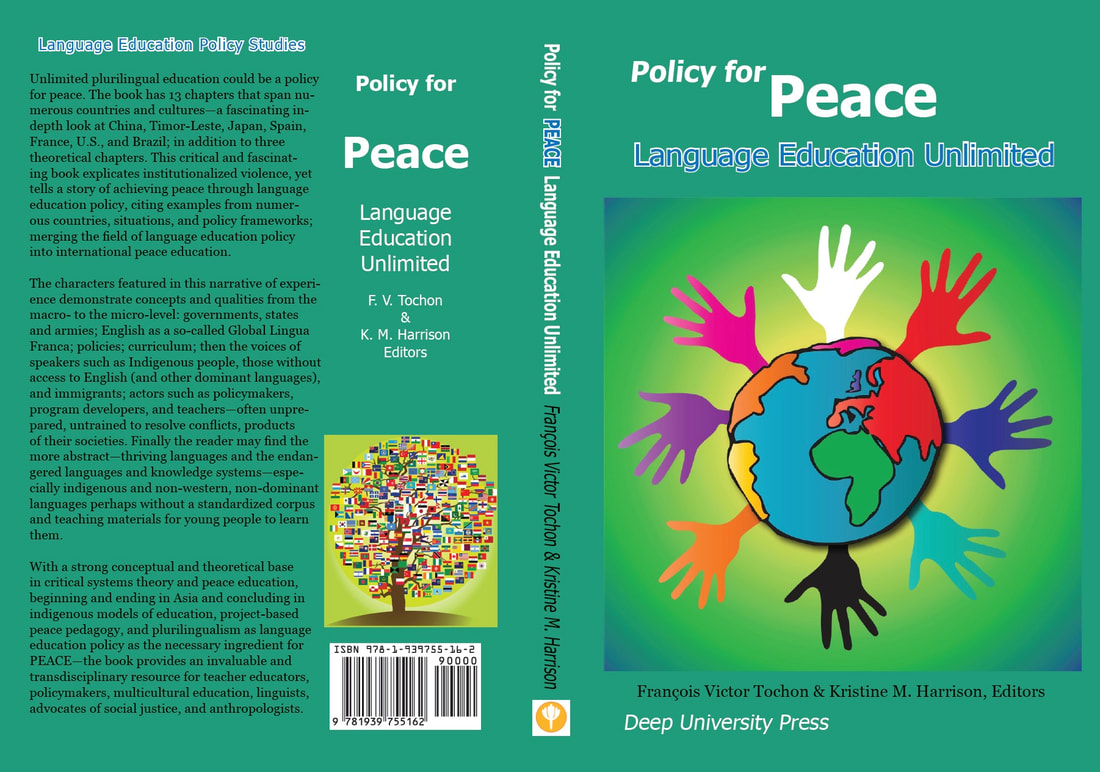Language Education Policy Studies and Peace
Francois V. Tochon & Kristine Harrison
|
The learning of foreign languages in China has always been linked with foreign policy, and foreign policy has always been shaped by the philosophy that for China to remain at peace with other nations, China must be strong and modern. Agnes Lam (2005, p.190)
|
Peace studies are an open field of study and the connection to languages is quite unexplored. The language window opens new sectors of inquiry and intervention, because peace is not only about wellness, it is about comprehension, mutual understanding and ability to communicate. This review essay is written within a transdisciplinary perspective and is largely informed by peace education studies (Page, 2008) and the work of Johan Galtung (1996, 2001). It supports the argument that multilingual proficiency should be one of the strategic goals of peace education. It relates to the broader issue of educating populations to other cultures and developing a sense of world citizenship.
|




